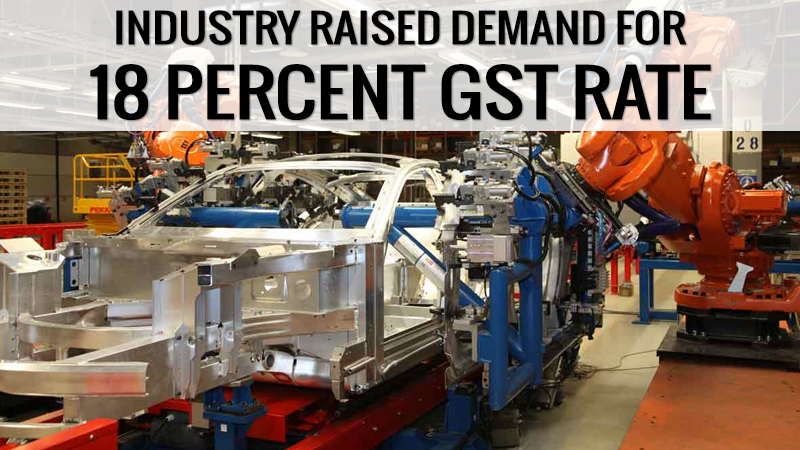Industry demanded 18 per cent GST rate as it finds that the April 2017 deadline is hard and will likely generate tax buoyancy without controlling inflation. Industry also demanded relaxation in the penal provisions.
According to the sources, the Industry when holding meeting with the state finance ministers said that it is hard to meet the deadline in 2017 as they need sufficient time to develop the IT infrastructure.
Read Also: Impact of GST Bill on Different Sectors in India
CII President Naushad Forbes said, “We believe a maximum rate of 18 per cent as standard rate will be revenue neutral and ensure adequate tax buoyancy. Also the centre has agreed for full 5-year compensation for revenue loss to states, so 18 per cent rate will be more than adequate.”
Ficci suggested that “Goods fully exempted from the levy of excise duty and VAT by all the states should be categorised as exempted goods in the GST regime as well and the standard rate must be reasonable in order to ensure compliance.”
On the other hand, the government is set to make the new indirect tax regime effective from April 1, 2017. GST will merge the excise and service tax along with local levies, octroi and VAT.
On the implementation of the new indirect tax regime, Forbes said CII is looking forward to April 1, deadline and committed to do whatever is required. Forbes added further, “If we work towards that deadline and if have clarity on some of the provisions as early as possible, we can ensure that our own IT systems are put in place quickly so that we can go live as early as possible.”
Meanwhile, Chairman of the Empowered Committee of state finance ministers and West Bengal Finance Minister Amit Mitra assured industry chambers and traders that the problems and concerns on the deadline will be looked into at earliest. He appealed the industry to provide valuable suggestions on the quantum of penalty.
Industry chambers also raised the demand for single centralised registration of suppliers of services who run their operation in different states.
Forbes stated, “The states recognised very much that certain telecom services come under central scheme. Under the current draft, you would need to register in each state which would make it very very cumbersome. And states were very receptive to the idea that one needs a simple, single registration. Because that won’t affect revenue, it will only make a simpler and more transparent regime.”










